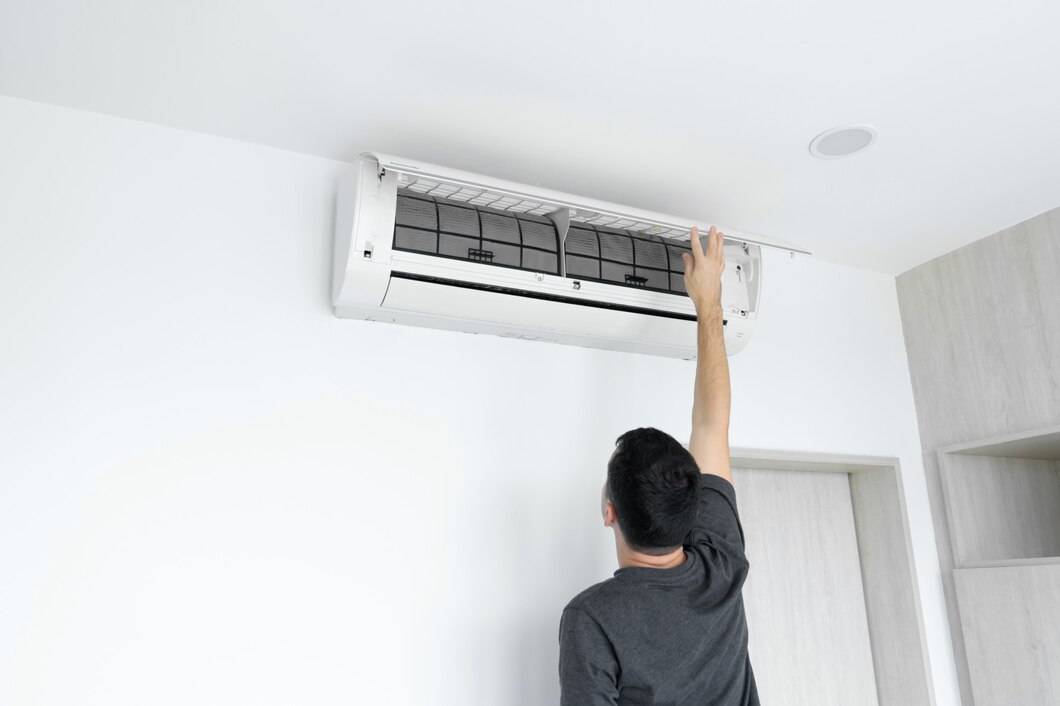


Heat pumps help keep homes in Andover comfortable year-round by pulling double duty cooling in the summer and warming in the winter. But like any HVAC system, problems can come up. One issue that many homeowners deal with is a refrigerant leak. When this happens, your heat pump may struggle to keep up with your comfort needs and use more energy than usual.
If your system is not working like it used to, it is worth considering refrigerant issues, especially if those problems seem to come out of nowhere. While a refrigerant leak might not be easy to notice at first, it can create long-term trouble if left unresolved. Identifying the signs early and getting the system looked at by trained professionals will help prevent damage and protect your investment over time.
Common Signs Of Refrigerant Leaks In Heat Pumps
Refrigerant leaks are not always obvious. Many symptoms can appear mild at first, but they often get worse quickly. If you begin noticing changes in how your heat pump operates, there could be a leak behind it.
Watch for the following signs in your Andover home:
- Unexpected energy spikes: If your cooling or heating bills have gone up without a change in use, your system may be working harder than it should because of low refrigerant.
- Loss of performance: If your heat pump is not cooling or heating your house properly, it may be low on refrigerant. The air coming from the vents may feel weak or not as cold or warm as expected.
- Strange noises: A hissing or bubbling sound usually points to a leak. These noises often come from the coils or refrigerant lines.
- Ice buildup: When refrigerant is low, the coils can freeze. You might see frost or ice forming on the exterior unit or refrigerant lines.
Homeowners sometimes focus on replacing filters or adjusting the thermostat when problems like this come up. That is understandable, but when those changes do not solve the issue, the problem might run deeper. For example, one Andover homeowner ignored a recurring ice buildup for several weeks, thinking the issue was just tied to outdoor temperature swings. It turned out to be a refrigerant leak that caused compressor wear, which resulted in more involved repairs. Recognizing the early signs can help avoid costly outcomes.
Causes Of Refrigerant Leaks In Heat Pumps
Understanding what causes refrigerant leaks helps homeowners grasp why the issue requires professional repair. It is not just about topping off refrigerant levels it is about fixing the root problem before it creates more system wear.
Here are some of the main causes of refrigerant leaks in heat pumps:
- Aging components: Heat pumps go through temperature changes and vibration over time. This can lead to the development of pinhole leaks in various parts of the system.
- Corrosion: Coils are often made of copper or aluminum, which are prone to corrosion. Formic acid, which can form inside homes naturally, may erode the coil and lead to leaks.
- Faulty installation: Poor initial setup can cause connection points to loosen over time. That brings on leaks earlier than expected.
- Accidental damage: Something as simple as a bump from yard equipment or debris during a storm can cause refrigerant lines to crack or bend.
Not all leaks happen due to age alone. Sometimes even newer systems can experience issues if the installation was not done right. That is why it is important to rely on licensed professionals from the start and during every service visit. Addressing small cracks or connector issues right away can go a long way in keeping your system efficient and reliable throughout the year.
Steps Our Technicians Take to Repair Refrigerant Leaks
Refrigerant leaks require more than a quick refill to keep your heat pump running the way it should. Our technicians follow a set process to make sure the issue is diagnosed, fixed, and tested thoroughly. This helps avoid repeat problems and protects both performance and system life.
Here is how our professionals typically handle a refrigerant leak in a heat pump:
1. Inspection and system analysis
The first step is a full system check. Our technicians assess pressure levels, listen for abnormal sounds, and inspect visible parts for signs of damage or corrosion. If ice buildup or oil spots are present, that usually points to a refrigerant issue.
2. Leak detection and access
Locating the exact source of the leak is a key part of the process. Our technicians use specialized tools such as electronic leak detectors or UV dye to track down the weak spot. Once the area is identified, they carefully access the affected part of the unit.
3. Repair or replace damaged components
Depending on the spot and size of the leak, the solution might involve sealing a joint, tightening a connection, or replacing a damaged section of tubing or coil. Our technicians use industry-standard parts and follow proper repair methods to avoid making the issue worse.
4. Recharge the system
After the repair, our professionals recharge the system with the correct type and amount of refrigerant. Getting this exactly right matters. A system that is undercharged or overcharged can perform poorly or wear out faster.
Once repairs are made, our professionals run the system to confirm that everything is functioning properly. This includes checking airflow, temperature output, and ensuring the leak has been fully resolved. In some cases, homeowners are surprised by how much better their heat pump runs after the repair, especially if the refrigerant level had been low for a while without them noticing.
Preventive Measures to Avoid Future Refrigerant Leaks
Dealing with refrigerant leaks more than once is frustrating and costly. The good news is that many leaks can be prevented with the right care and awareness. Homeowners in Andover can reduce the chances of a leak happening again by following some simple steps.
Here is what can help:
- Keep up with routine maintenance. Regular system checks are one of the best ways to catch weak connections, aging parts, or small leaks before they become bigger issues.
- Work with certified professionals when installing or replacing your system. A poor installation can lead to loose fittings or improper refrigerant charging, which may set the stage for leaks.
- Pay attention to performance changes. If airflow drops or your system is not reaching the right temperature, do not wait weeks to get it checked. Early action can stop a small problem from turning into a larger one.
- Make sure the outdoor unit is protected. Minor dents or damage to refrigerant lines often happens during yard work or general exterior maintenance. Create a little buffer zone around the unit and do not place heavy objects nearby.
By focusing on long-term care and staying alert to early warning signs, homeowners can protect their heat pump’s health and avoid the inconvenience of sudden breakdowns.
Ensuring Your Heat Pump’s Longevity with Expert Help
Preventing refrigerant leaks and properly fixing them when they occur goes a long way in keeping your heat pump running right. A refrigerant problem puts extra stress on the compressor, lowers performance, and can eventually shorten the system’s life. Timely repair saves money on bigger repairs down the road and avoids situations where the system breaks down on a hot summer day in Andover.
Choosing trained professionals to handle diagnosis, repair, and ongoing checkups helps cut down on unexpected issues. Whether you have owned your heat pump for two years or ten, regular care helps keep things simple. No large surprise bills, no unexplained drops in comfort, and no wondering if your system is pushing itself too hard.
Refrigerant leaks do not always show loud or obvious signs. But catching them early, fixing them right, and taking steps to avoid a future repeat is the key to long-lasting performance. Having a go-to team you trust to handle heat pump repair in Andover takes the guesswork out of system care and keeps your home comfortable when it matters most.
If your heat pump is not performing as it should, addressing the issue promptly can save you from future troubles. For reliable and efficient heat pump repair in Andover, trust the experienced team at MJB Heating & Cooling. For a quick estimate or to book a service visit, please contact us today.


.avif)




































.avif)
.avif)

.avif)




